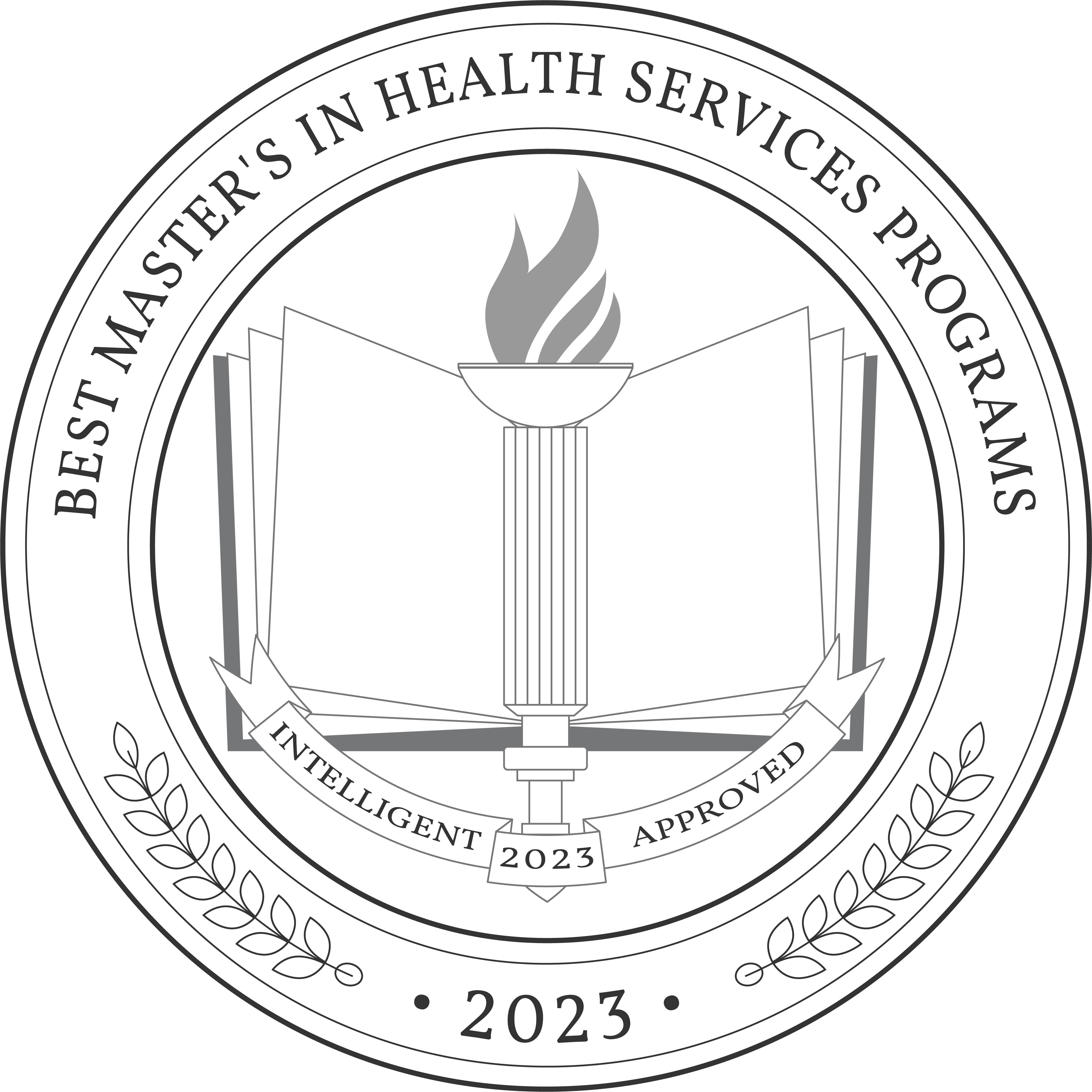Why This Matters
-
2.4 MILLION NEW JOBS IN HEALTHCARE
The healthcare industry is growing rapidly, with jobs increasing 15% between 2019 and 2029. That growth will lead to some 2.4 million new job openings in the field.
-
MEDICAL AND HEALTH SERVICES MANAGER JOBS GROWING 32%
Medical and health services manager positions are growing especially fast, increasing 32% according to the Bureau of Labor Statistics. That should create 133,200 more of these jobs.
-
EARN OVER SIX FIGURES WITH A MASTER’S DEGREE
The median annual salary for medical and health services managers was $100,980 in 2019. A master’s degree could help you land one of those six-figure managerial positions.
Our Research
We reviewed many Master’s in Health Services degree programs, including both Master of Science (MS) and Master of Health Science (MHS) degrees. Online, on-campus, and hybrid programs are all included in the list to offer flexibility among the options.
All of the programs noted have regional accreditation, and a number also have programmatic accreditation through the Commission on Accreditation of Allied Health Education Programs (CAAHEP). Attending an accredited program guarantees the quality of your education.
We evaluated each program on the basis of flexibility, faculty, course strength, cost, and reputation. Then we calculated the Intelligent Score for each program on a scale from 0 to 100. For a more extensive explanation, check out Our Ranking Methodology.
- 64 hours to write this article
- 204 universities and colleges we assessed
- 318 education programs we compared
The Top 48 Master’s in Health Services Degree Programs

Discover More Options
What You Should Know About This Degree
Health services is a broad field, but it mostly comprises administrative, managerial, and support roles. People who earn a Master’s in Health Services degree rarely take jobs that involve direct patient contact or care. If you want to provide actual medical care to patients, a Doctor of Nurse Practice (DNP) or Master of Science in Nursing (MSN) might be a more suitable degree.
Firsthand experience is valued in all healthcare fields, and many of these programs contain an in-person component as a result. Even online programs may have an internship requirement. Find out what a program’s in-person requirements include before applying, and make sure your schedule will allow you time to complete those requirements.
Most administrative and managerial positions in healthcare don’t require a certification or license, but there is one notable exception. Nursing home administrators must obtain a state-issued license, and licensing requirements vary by state. If you wish to pursue this career path, confirm that a program meets your state’s licensing requirements before enrolling.
Additionally, voluntary certifications and licenses are available for multiple careers in health services. A couple of well-respected credentialing bodies are the American Health Information Management Association (AHIMA) and the Association of Health Care Office Management (PAHCOM).
What’s Next?
As you continue to research Master’s in Health Services degrees, consider these questions:
- Am I eligible for this program? Some of these programs require a professional or educational background in healthcare, while others will accept any undergraduate degree. Find out what a program’s requirements are before applying, and confirm that you’re eligible.
- How long does it take to complete this online degree? These degrees tend to require 30 to 50 credits, which normally takes two to three years of full-time study to complete. Attending part-time will prolong the duration of a program.
When you’ve identified programs of interest, learn about their admissions process by contacting the admissions office or checking their websites. You’ll have to know what application materials to send in and when to send them in by.
Also think about how you’ll cover the cost of a program. Ask programs what scholarships and financial aid they make available. If you’re working, check with your employer to see whether it offers tuition reimbursement.